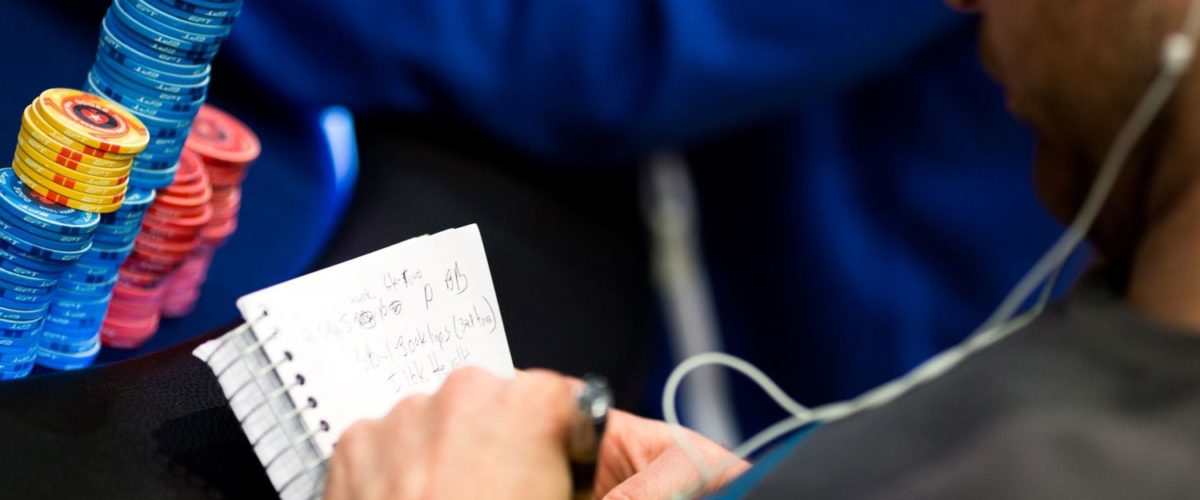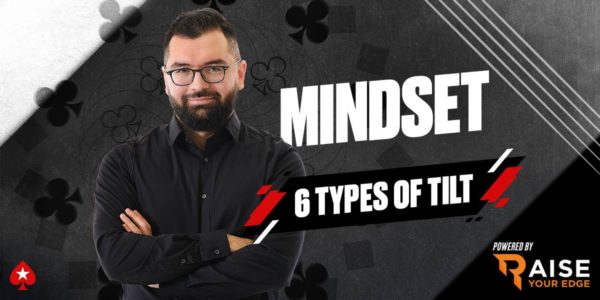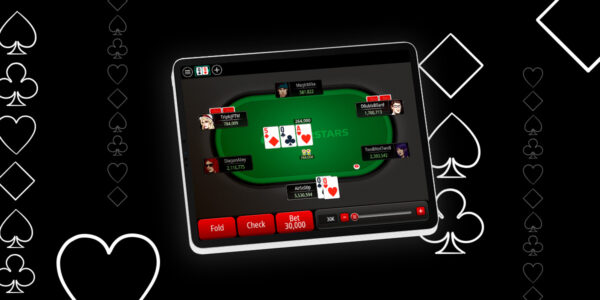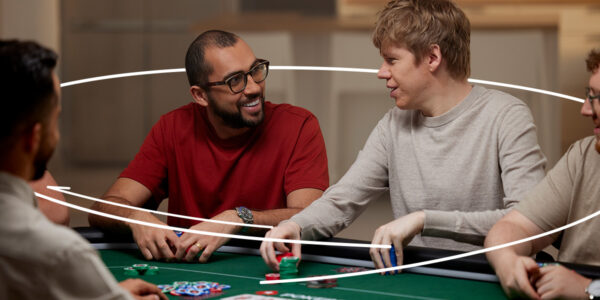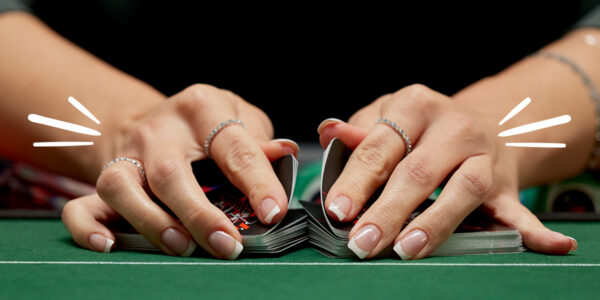Effective Note Taking
I often get asked the question, how can I take better notes on my opponents? What kind of things should I be noting on them? Is it even important to take notes?
First of all, yes it’s important to take notes. Poker is a game of incomplete information. The more information we have on an opponent, the better decisions we’ll be able to make against them. We face many opponents at the tables. While we may remember an egregious play that someone made 20 minutes ago on our tournament table, will remember anything about this 6 months from now when we randomly are seated with them in another tournament? The chances are slim without notes.

So how should we go about making notes that are effective, and what kinds of things are noteworthy?
Let’s start with the latter. Here are four types of information beneficial to have in notes:
- Exploitable Patterns: If an opponent acts in a predictable manner, you can devise a strategy to exploit that. This may allow you to save bets when beat, make more when good, or even manufacture bets for your stack via bluffs depending on the situation that you wouldn’t otherwise be able to do without the information in your notes.
- Natural Tendencies: This may coincide with an exploitable pattern. These may be things like a player who bets small with draws, but pots it with made hands, or a player that limps in from early position with weak suited cards.
- Skill Level Indicators: Anything you witness that might indicate the skill level of an opponent may be noteworthy. These are invaluable because they can help you get inside your opponent’s head a bit, to determine what they might be thinking in a critical spot. Does the player demonstrate an understanding of ICM considerations? They may well fold all but the strongest hands to your shove on the bubble when there are short stacks present, where as a less experienced fishy player may make some terrible call offs due to their lack of understanding or skill level regarding ICM.
- Unusual Circumstances: If an opponent does something grossly out of the ordinary, that may be noteworthy. For example, let’s say an opponent opens to 2x on a 5 big blind stack. Since any playable hand would typically be shoved all in for 5bb, and everyone should realize this, if we get to see their hand this could be relevant for future situations.

So now that we have some ideas of what to note, how do we make those notes in an effective manner? The whole point of the note is to deliver you useful information in the future, when you no longer remember any details of the player or thing being noted. Think of it like sending yourself a message in a bottle. When this bottle washes ashore 10 months from now, will the note you’ve passed to your future self, make sense and be actionable? Then that’s a good note. Below I’m going to provided you a few examples. These are actual notes I took on players at one point. Some of them were taken a long time ago and are not good or useful notes. Now we can learn from them together.
Example 1: Always defends blind for a min-raise.
This is a tendency that’s good to know, but it doesn’t really give me enough info. Which blind? Both? And will they do this on both deep and shallow stacks? Also, can I assume this player will release their blinds to a bigger raise? The note seems to imply it, but is that really true? If so, how much more will deter them? This note was a good start, but it’s leaving out a lot of critical information that would make it more actionable in the future.
Example 2: Berates opponents who draw out on him.
This falls into the category of unusual circumstance, though sadly not as unusual as it should be. This note tells me that the player might be tiltable for one thing, that they seem to lack emotional control. But this note could give me a lot better information. What was the “draw out” that prompted their outburst? If the hand had a legitimate reason for being in the pot as played, and they don’t recognize that, this note could be a skill level indicator that their game is not very sophisticated. Did the tilter mention things like odds or outs, indicating they do think about such things? Or did they just rant? This message in a bottle isn’t really delivering me actionable information.
Example 3: Reraises preflop with big pairs.
Duh? This note is an embarrassment. For starters, it’s redundant (who doesn’t 3-bet preflop with big pairs?). Secondly, I’ve not included any actually useful information. Things like, do they always 3B with big pairs, or are they capable of smooth calling a raise with them too? Have I ever seen them 3B with non-premium starting hands? This note does indicate that when they don’t 3-bet preflop, they probably don’t have a big pair, which is valuable to know… but when this doesn’t hold true, it could be very costly to my stack. More detailed info, along with not stating the obvious, would make this note more useful.

Example 4: Standard raise preflop is 3-4x, but opens much larger with AA.
This is a much better note than the previous three examples. I made this note on a player after witnessing this move twice in the same tournament. It’s concise, and details an exploitable pattern that can be used to most likely save bets when they open for their much larger sizing and we have a decent hand we’d normally be inclined to continue with. Or, if the money is deep enough, it may allow us to make some speculative calls preflop against a range we believe they have narrowed considerably by virtue of their action.
The bottom line with effective note taking is really the message in a bottle test. When you are seated with this player again months from now, remembering nothing about your encounter today, what will the note tell you? Will the information be relevant? Will it be actionable? If the answer to those two questions is yes, then it’s probably a pretty good note to take.
Do you have your own note taking strategy? Share your thoughts below!
Condimentum Nibh
Donec sed odio dui. Cras mattis consectetur purus sit amet fermentum. Vestibulum id ligula porta felis euismod semper. Curabitur blandit tempus porttitor.

